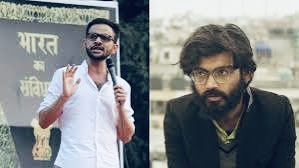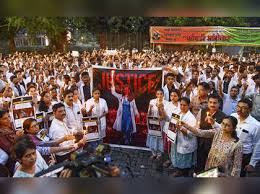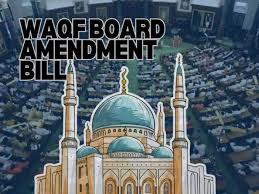Delhi High Court denies bail to Umar Khalid, Sharjeel Imam and 7 others in Delhi riots conspiracy case
Introduction
The Delhi Riots Conspiracy Case stems from the communal violence that erupted in northeast Delhi in February 2020, coinciding with protests against the Citizenship Amendment Act (CAA) and the proposed National Register of Citizens (NRC). The violence resulted in 53 deaths and hundreds of injuries.
In the aftermath, the Delhi Police’s Special Cell registered FIR 59/2020, alleging that the riots were not spontaneous but part of a “larger conspiracy” orchestrated by activists, student leaders, and protest organizers. The accused were charged under the Unlawful Activities (Prevention) Act (UAPA) and various sections of the Indian Penal Code (IPC)
Key details of the case
The accused individuals are Umar Khalid, Sharjeel Imam, Mohd Saleem Khan, Shifa Ur Rehman, Athar Khan, Meeran Haider, Shadab Ahmed, Abdul Khalid Saifi, and Gulfisha Fatima.
The Court Bench of Justices Navin Chawla and Shalinder Kaur have rejected all bail appeals made by Sharjeel Imam and others. The accused are facing allegations of criminal conspiracy, rioting, and promoting enmity under UAPA and IPC provisions.
This ruling comes after years of legal proceedings and multiple bail rejections, with some of the accused spending more than four years in custody. Their legal teams have indicated plans to challenge the decision in the Supreme Court.
Defence Arguments
• Umar Khalid’s lawyer argued that his participation in the WhatsApp group did not contain any incriminating messages or evidence of conspiracy.
• Sharjeel Imam claimed to have no connection with the other accused and denied involvement in any planning.
• The Prosecution Solicitor General Tushar Mehtaargued that the riots were a deliberate attempt to tarnish India’s reputation globally and create divisions along religious lines keeping in mind that it was planned during the Trump’s visit to India.
Legal charges
The accused face a combination of charges pressedagainst them. These are as follows –
Unlawful Activities (Prevention) Act (UAPA)
These are the most serious charges, often used in terrorism-related cases:
• Section 13: Punishment for unlawful activities
• Section 16: Punishment for terrorist acts
• Section 17: Punishment for raising funds for terrorist acts
• Section 18: Conspiracy to commit terrorist acts
Indian Penal Code (IPC)
These charges relate to incitement, violence, and conspiracy:
• Section 124A: Sedition — inciting disaffection against the government
• Section 153A: Promoting enmity between groups on religious grounds
• Sections 147–151: Rioting, unlawful assembly, and related offenses
• Section 120B: Criminal conspiracy
Arms Act
• Some accused are also charged under provisions of the Arms Act for alleged possession or use of weapons during the riots.
Conclusion
The Delhi Riots Conspiracy Case underscores the tension between national security and civil liberties. With bail denied to key accused under UAPA, the judiciary affirms the seriousness of the alleged conspiracy. As trials proceed, the case remains a pivotal moment in India’s legal and political landscape, raising questions about dissent, protest rights, and the use of anti-terror laws.





